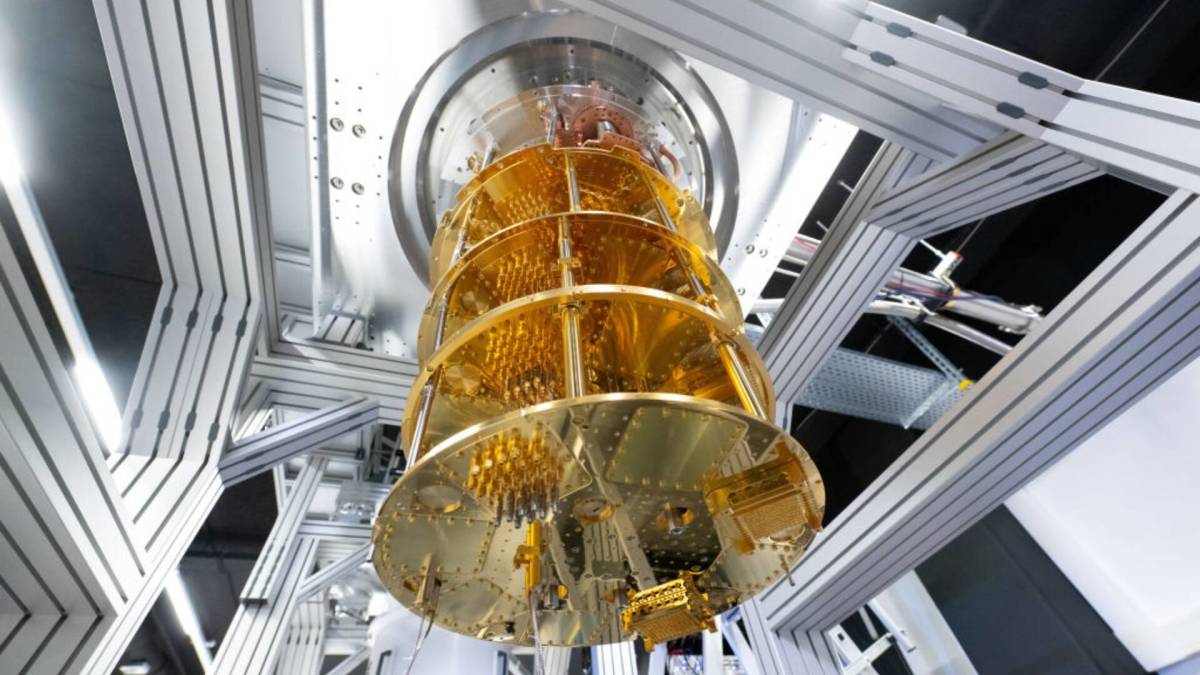In 2025, the quantum computing space essentially broke out of obscurity, with AI’s unrelenting demand spilling into virtually every compute bottleneck.
For perspective, the “quantum cohort,” as I like to call it, comprised of IonQ (IONQ), Rigetti, D-Wave, and Quantum Computing Inc., currently commands a combined market cap exceeding $50 billion.
The stock returns over the past year in these quantum bellwethers have been staggering. IonQ has surged over 92%, while Rigetti and D-Wave have soared 274% and 400%, respectively.
A huge part of the investor enthusiasm surrounding the stock is the deep link between AI and quantum. Hyperscaler AI capex remains massive, continuing to drive demand for specialized accelerators.
Also, consulting baselines suggest that AI and computing spending will remain elevated through 2026, with quantum revenues potentially transitioning to actual bookings. For context, McKinsey estimates the 2025 quantum industry sales to be around $1 billion, and the long-term total addressable market may reach an eye-popping $198 billion by 2040.
Amid the frenzy, IonQ’s CEO is making waves with a statement that effectively challenges Nvidia’s AI dominance. His bold remark reframes the conversation about what powers the next computing revolution.

Image source: Sven Hoppe/picture alliance via Getty Images
Quantum upstart IonQ’s CEO fires a warning shot at Nvidia’s AI dominance
IonQ CEO Niccolò De Masi said that quantum computing isn’t just the next big leap; it’s the next replacement cycle.
In an interview from the New York Stock Exchange, De Masi talked up the immense potential of quantum processors, or QPUs, which could potentially take the place of the GPUs currently powering today’s AI boom.
More Nvidia:
- Goldman Sachs tweaks Nvidia’s stock price target with a twist
- Fund manager drops bombshell call on Nvidia stock
- Amazon’s new Alexa feature impacts Nvidia
“Quantum computing is the next leg of the computing revolution,” he said. “Just as GPUs overtook CPUs, QPUs will ultimately start to replace GPUs.”
That seems like a radical notion in a market that’s built around Nvidia’s $4 trillion GPU empire. However, De Masi views it as more of a natural evolution, with robust GPUs and QPUs working in tandem, but with quantum systems likely to take the lead in the future as they become more powerful, compact, and energy-efficient.
Related: Former Intel CEO drops curt 2-word verdict on AI
IonQ’s latest hardware, Tempo, might back up the ambition.
De Masi claims it delivers a 36-quadrillion-times larger compute space than IBM’s comparable machine, blowing past the power of nearly a billion GPUs. Additionally, in a specific benchmark involving AstraZeneca, AWS, and Nvidia, IonQ’s system was able to compress a month’s worth of classical computing into a single day.
“We’re just getting started,” he said. “Each generation will move millions of times, then billions, trillions, quadrillions more powerful.”
Hence, if QPUs can even partially live up to that impressive trajectory, Nvidia’s dominance in AI hardware may someday face its first real quantum test.
JPMorgan just gave quantum its biggest Wall Street endorsement yet
JPMorgan just gave quantum computing a head-turning $10 billion boost with a decade-long push into AI, cybersecurity, and frontier tech.
The sweeping Security & Resiliency Initiative sparked a massive sector-wide rally on Oct. 13, 2025, with IonQ jumping roughly 19%, Rigetti up 25%, and D-Wave and Quantum Computing Inc. stocks surging 23% and 11%, respectively.
The bank describes the plan as one that effectively aligns private capital with U.S. national-security and innovation goals, with its tentacles spread across 27 subsectors. For that reason, JPMorgan doesn’t pick today’s winners, but rather develops a framework for deal flow, coverage, and partnerships across emerging tech.
Related: Morgan Stanley lays out shock case for the S&P 500
The development is a massive plus for small-cap quantum names.
JPMorgan’s brand effectively lowers the perceived funding risk, giving room for new institutional attention, while setting the stage for growth-stage capital, joint ventures, and bank-led financings.
The near-term impact is clearly a halo effect, which should pull in buyers. Over the long term, fundamentals still rule with contracts, benchmark wins, and proof that quantum hardware can effectively turn promise into profits.
Quick takeaways:
- JPMorgan is committing $10 billion to frontier technology, naming AI, cybersecurity, and quantum computing as its top priorities.
- Quantum stocks surge, with IonQ, Rigetti, and D-Wave jumping into double digits on the news.
- Big-bank backing lowers funding risk, while drawing institutional eyes to small-cap quantum computing plays.
Related: CoreWeave stock has one big hurdle to overcome
#IonQ #CEO #threw #curveball #Nvidia